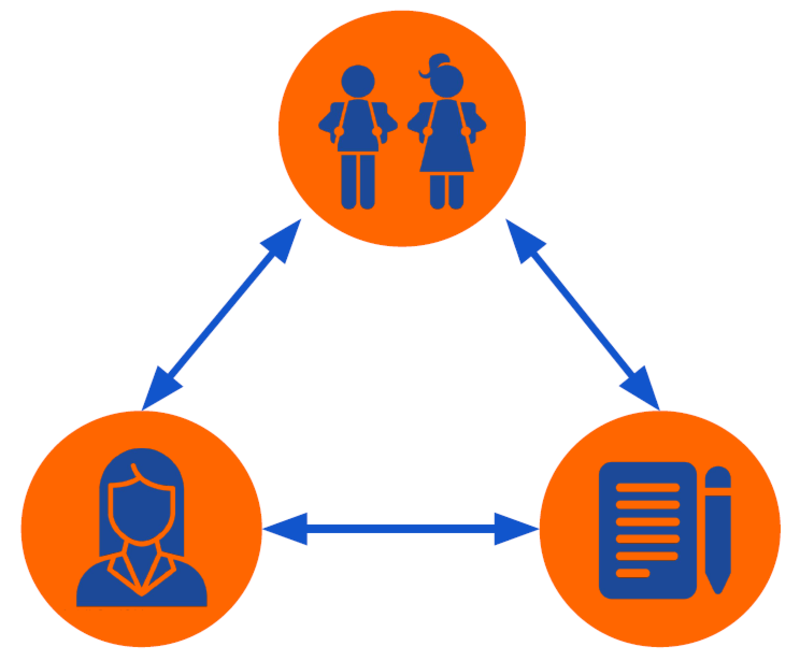FY21 Education Overview
The City of Boston is investing in its students as the key to lifting up future generations of Bostonians.
Between the Boston Public Schools (BPS) and charter schools, public education makes up over forty percent of the City’s FY21 budget. $1.258 billion will support the over 53,000 students at BPS and $232 million will support 11,156 Boston students in charter schools.
Education Budget
Mayor Walsh’s investment in public education is a cornerstone of the FY21 budget. The City's education budget will increase by $97 million from FY20 to FY21, including Boston's charter tuition assessment and the Boston Public Schools budget.
In his 2020 State of the City address, Mayor Walsh announced an investment of $100 million in direct classroom funding for BPS over three years, over and above standard cost increases. The FY21 BPS budget includes the first $36 million of this historic investment. At $1.258 billion, the FY21 BPS budget is an $80 million increase from FY20, and the largest BPS budget in history.
Boston has increased its annual spending on education by $441 million since Mayor Walsh took office. Over that time, per-student spending has increased over 30% and the number of educators has increased by 556.
Education Budget by Fiscal Year
Nearly 90% of the BPS budget will go into schools or toward direct student services.
Investing in Schools
In FY21, funding directly in schools will increase to $809 million. Combined with another $317 million in school services budgeted centrally - such as transportation, special education, and facilities - total spending in schools will reach nearly $1.13 billion, representing roughly 90% of the BPS budget.
The FY21 BPS budget features $36 million in new investments, 100% of which will be spent in schools. These new investments fall into three categories:
- $9 million to create a strong foundation for student success and outreach to connect families to resources and information
- $12 million to increase teachers’ skills through coaching and consistent feedback and developing high-quality curriculum
- $15 million to raise the bar on student learning with high-quality learning materials, resources, and improved learning environments
These investments are aligned with Superintendent Cassellius’s strategic vision for the district, the product of an extensive community engagement tour at the start of the 2019-20 school year. They will accelerate BPS’s efforts to provide an excellent, equitable education for every student in every neighborhood in Boston.
Direct School Expenses
Direct school expenses make up 64% of the BPS budget.
Targeted Supports to Improve Performance
Mayor Walsh’s $100 million commitment will give BPS a reliable base of funding to plan strategic, targeted investments that will be felt district-wide. In FY21, over half of new investments will be directed to 33 “Transformation” schools identified by the State as needing greater support. Investing in BPS’s lowest performing schools will raise the quality of the district overall and yield a more consistent experience for Boston students.
Targeted investments include:
- $5.6 million for social workers to provide a coordinated, multi-tiered system of supports to meet the social-emotional needs of students and their families
- $2.5 million for family liaisons who reflect the diversity and speak the languages of the school communities they serve, helping families navigate BPS processes like registration and connecting them to community resources for housing, food, and counseling
- $4.6 million for instructional facilitators to support BPS educators, providing feedback, overseeing lesson planning, and imparting instructional strategies for getting the most out of curriculum materials
- $2.8 million to add additional “special” classes in art, music, science, or physical education at select schools, to engage students’ minds and make time available for educator coaching and planning
Other Investments in Quality
The FY21 budget makes other investments in quality that extend to the whole district.
The COVID-19 crisis has underscored the extent to which technology has become an essential learning tool. In recognition of this fact, $4 million will fund the purchase of technology to enhance teaching and learning. BPS will also boost professional learning for teachers by $2.2 million and will hire 25 additional custodians as an investment in building condition and cleanliness.
In addition to new investments, BPS will sustain and expand existing support for areas like special education and Universal Pre-K, where approximately 125 additional seats are expected to be added in FY21.



